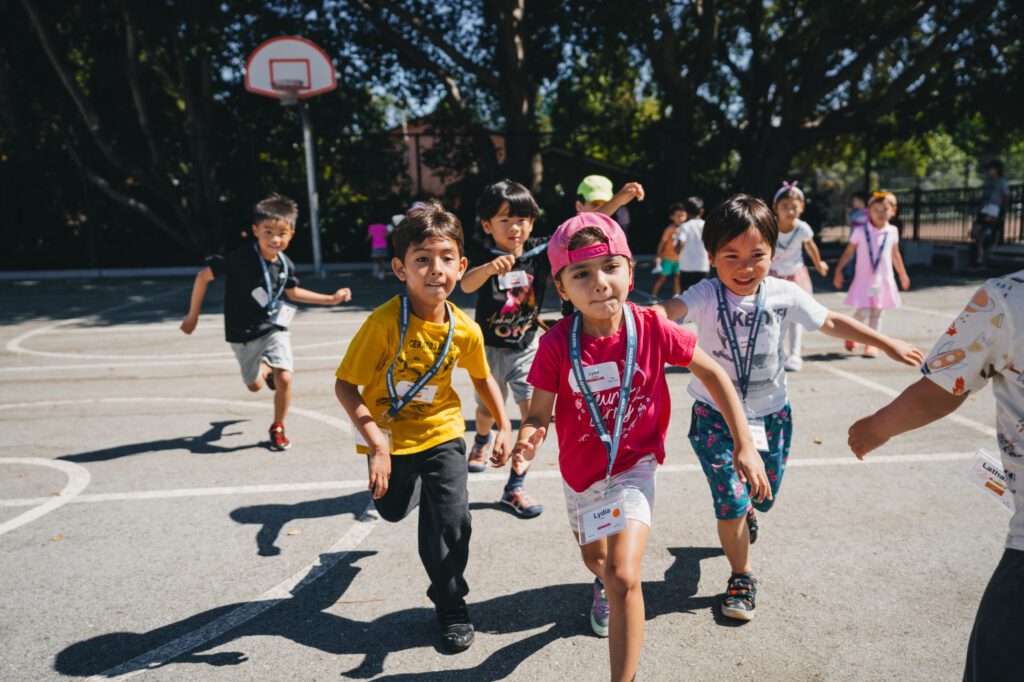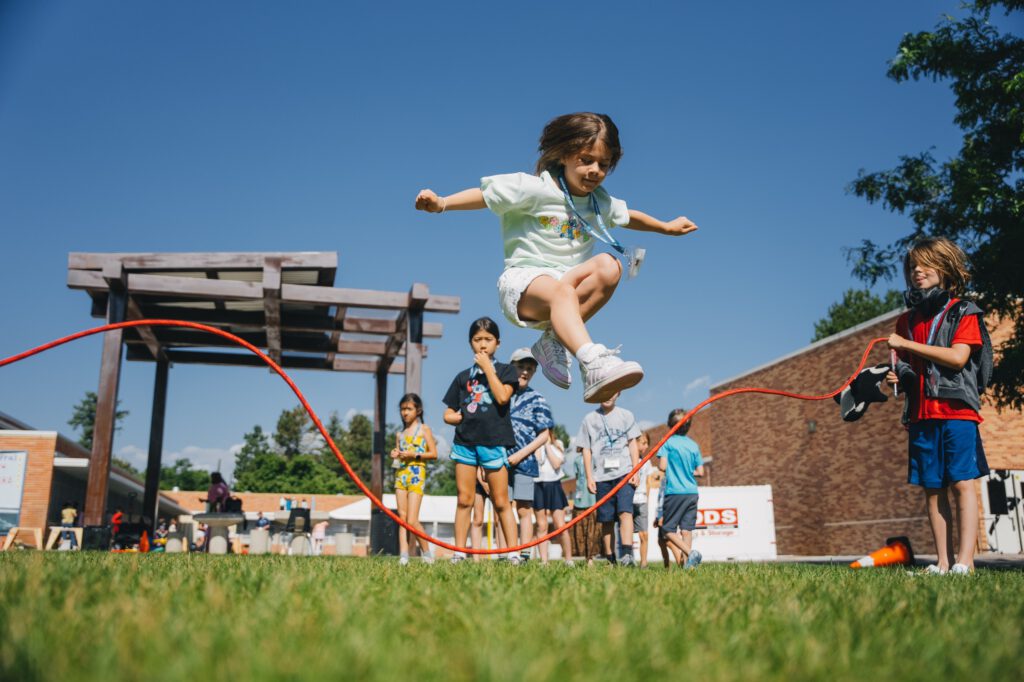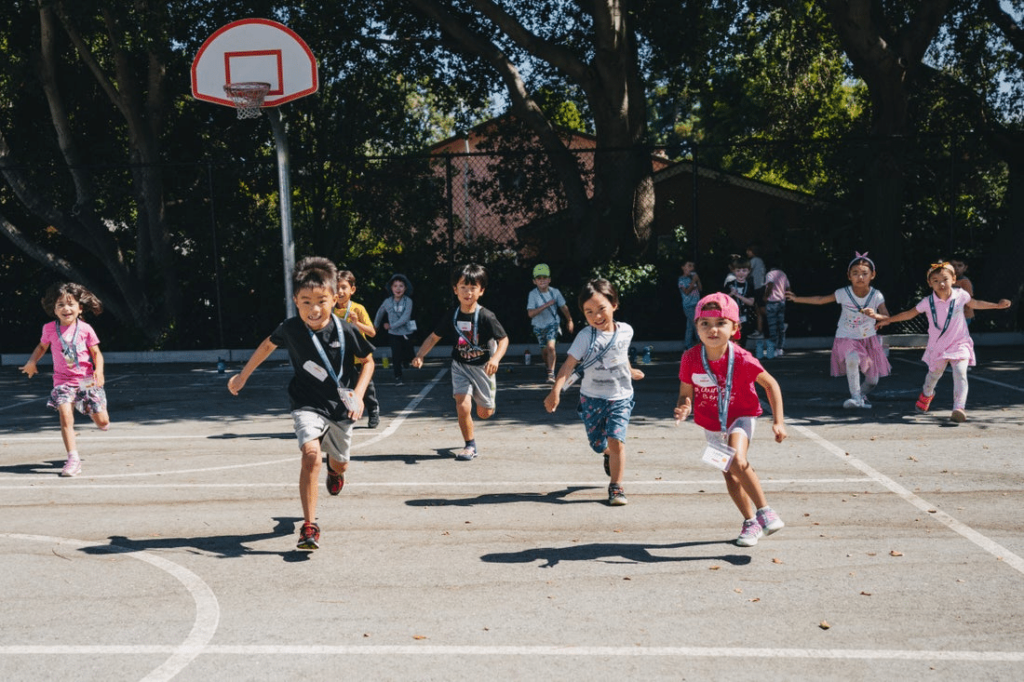There are far more benefits of summer camp than kids and caretakers may realize. From the psychological benefits of summer camp—such as increased independence and creativity—to improved physical fitness, camp leaves meaningful, lasting impressions on its campers.
If you’re preparing your kid for a season of growth and discovery, you may wonder exactly what they’re going to learn. To that end, this handy camp companion unpacks the numerous, valuable benefits campers receive from their transformative sessions of summer fun.
#1 – Improved Independence
One of the greatest life lessons kids learn at summer camp is how to be more independent. Our boundless, unconditional love for our children drives us to protect them and care for them in any way possible. Our kids are sacred and precious, and it can be instinctual to do everything we can to help them and make them feel comfortable in life.
While this persistent, affectionate care reminds kids that they’re safe and loved, it may also have some unintended repercussions. Recent research from the University of Michigan concluded that overbearing parenting measures during childhood and teen years can lead to young adults who are not fully prepared to take on the world.
Opinions are varied when it comes to assessing the root cause, as:
- 25% of parents believe their own unwillingness or inability to increase their child’s responsibilities is harming their degree of independence
- Meanwhile, 60% of parents cite their child’s own attitude and attributes as the main reason they’re not more independent
Regardless of the cause, it can be difficult for any parent to strike the balance between supervision and freedom that allows kids to improve their self-sufficiency. Thankfully, a summer day camp can help children elevate their sense of independence.
Summer camp, by its very nature, temporarily removes campers from their primary caregivers and encourages them to take on tasks without their supervision. But, just as distance makes the heart grow fonder, separation makes the mind grow stronger.
As the American Camp Association (ACA) notes, camp is a unique opportunity for children to see what they can accomplish without their guardians hovering nearby. A summer of daily, parent-free adventures may be the first opportunity for many campers to:
- Take responsibility for themselves and their belongings
- Make their own decisions
- Feel a sense of autonomy
While leaders are there to help when needed, they won’t coddle children through tasks they know they can handle alone. When children see they can manage duties without assistance, their sense of self-sufficiency grows and they develop a more independent mindset. So, when your camper heads off for the day having packed their own lunch and supplies, you’ll know the summer camp benefits are beginning to take effect.
#2 – Increased Creativity From Outdoor Adventures
Our world, from what we study to our pastimes to the very jobs we work, has gone increasingly digital in recent years. While this may result in more employment and educational opportunities and increased interconnectedness, it also has some notably negative consequences.
According to the Centers for Disease Control (CDC), kids now spend almost eight recreational hours a day in front of screens split between activities such as:
- Watching TV
- Browsing the web
- Posting on social media
- Playing video games
Add on any academic responsibilities that require kids to stare at a tablet or computer, and it wouldn’t be a stretch to assume many children spend half of their waking hours or more at a screen.
According to the American Academy of Pediatrics (AAP), excessive screen time has a negative effect on children’s creativity, amongst other crucial characteristics. According to the AAP’s research, too much time on a tablet, laptop or cellphone leads to:
- Diminished creative thinking skills
- A reduced sense of curiosity and adventure
- Decreased inventiveness
Alternatively, spending time in nature has the opposite effect on curiosity and creativity. While excessive screen time and artificial environments slowly wear away at our ability to think outside the box, ensconcing ourselves in natural landscapes actually has restorative potential for our creative capacity.
At camp, kids are compelled to put down their devices and take in the serenity of their surroundings. From painting a pond to digging for dinosaur bones to simply enjoying the beauty of the trees, campers benefit from far more outdoor time than they normally would during a daily routine of school and social media. Our campers spend 1 out of 3 activity rotations outdoors in addition to their playtime, lunch, and breaks.
The much-needed break gives them time to readjust and reevaluate their relationships to technology and their own imagination. Come September, after a summer of recharging their creative batteries, kids will be ready to express their artistic and inventive potential to impress their teachers, peers and parents.
#3 – Enhanced Physical Fitness and Overall Health
In recent years, it’s been hard to ignore the overall health implications of spending too much time online. Studies show that children who spend more than two hours a day in front of screens engage in significantly reduced levels of physical activity versus those who spend less.
To recap, the average child now spends around eight hours a day in front of screens—meaning devices are having a major impact on the health of our youth. Decreased physical activity in our childhood and teen years is closely tied to:
- Obesity
- Cardiovascular disease
- Poor mental health
Thankfully, camp can help children prepare for a healthy future by encouraging them to participate in physical games and play with their fellow campers. On any given day at the campgrounds, kids may take part in any number of amazing, active adventures such as:
- Traditional tag tournaments
- Rapidly-run relay races
- Restoring, rejuvenative hikes across pristine natural landscapes
- Wet and wild water fights and other aquatic activities
Throughout the summer, children will be encouraged to get active and enjoy physical fitness through fun, engaging activities—most of which hardly feel like exercise at all!
A physically active routine restores energy and helps kids develop healthy habits. So, when your camper comes home asking to throw the ball around rather than park up in front of their tablet, you’ll see the positive influence of camp’s activities firsthand.
#4 – The Enduring Friendships
Camp is a veritable social wonderland for young children where many meet friends that they keep well into their adult years. From the start of summer, campers will take part in a series of engaging activities that facilitate fun and stimulate socialization.
Under the thoughtful supervision of their leaders, children will work together to:
- Dream up, plan and play custom games
- Craft a collection of cool creations, such as catapults, chairs and circus costumes
- Compete in and win challenges, such as foot races and water wars
- Complete a plethora of other collaborative projects
These exciting activities provide the perfect environment for kids to learn to collaborate effectively and get along with one another. Hence, the vast majority of children head home from camp with a larger social circle than they came with.
According to the ACA:
- 96% of campers feel that camp helped them make new friends
- 94% of campers got to know friends who are “different than they are”
- 92% of campers say the people that they met at camp “made them feel good about themselves”
Camp provides a welcoming social scenario where, unlike school, campers are encouraged to talk to each other freely. They can bond over common interests, share new things they find interesting and combine their brains to solve mutual problems.
The result? Tight-knit bonds that form over the course of a few weeks, but last the entirety of a lifetime.
#5 – A Wealth of Valuable Life Skills
Over the course of a transformative summer experience, campers learn more valuable life lessons than they can count. From specific disciplines, such as crafting and painting, to more general soft skills, such as communication and confidence, camp teaches kids the essential attributes they need to succeed in life as they grow and mature.
We could spend the summer listing off all the useful skills campers develop—but then there would be no time for fun! According to the ACA, however, some of the most critical include:
- Leadership
- Communication
- Participation
- Responsibility
- Resourcefulness
- Resilience
- Caring
- Fairness
- Trustworthiness
So, if you want to help your child develop these and other critical life skills, consider enrolling them in a summer day camp this summer for an unforgettably positive, meaningful experience.
Enroll in Camp Galileo For the Best Summer Camp Experience
If you want to maximize the benefits your campers receive from their summer experiences, enroll your children at Camp Galileo. We help them improve their independence, bolster their health and make friends while stimulating their curiosity and intellectual abilities, no matter what age you choose to send your kids to camp.
Our varied program celebrates kids’ creativity while helping them explore STEAM projects through play and collaboration. Our goal is to give campers the tools to make the world a better place by cultivating their confidence, resilience and ability to think outside the box. Not only does Camp Galileo crank up the fun versus traditional summer camps, but we send kids home with a sense of adventure, perseverance and innovation that they couldn’t get anywhere else.
Enroll your kids in Camp Galileo today and begin reaping the benefits of our exceptional summer program. We have locations across the SF Bay Area, Southern California (Newport Beach, LA, OC and SD), Chicago, Denver & Seattle. Be sure to check out the Camp Galileo nearest you.
Explore our locations across California, Chicagoland, Seattle, and Colorado! Located in the California Bay Area? Be sure to check out our Berkeley summer camp or our Lafayettte summer camp. We have Camp Galileo locations across many communities. Explore our Camp Finder to find the locations nearest you.
Sources:
Science Daily. Failure to launch: Parents are barriers to teen independence. https://www.sciencedaily.com/
American Camp Association. Want an Independent, Confident, Resilient Kid? Camp Can Help!. https://www.acacamps.org/
Centers for Disease Control. Screen Time vs. Lean Time Infographic. https://www.cdc.gov/
Time. How We’re Endangering our Kids’ Imaginations. https://time.com/
International Journal of Behavioral Nutrition and Physical Activity. Is spending time in screen-based sedentary behaviors associated with less physical activity: a cross national investigation. https://ijbnpa.biomedcentral.com/
World Health Organization. Physical Activity. https://www.who.int/
National Library of Medicine. The Effect of Chronic Exercise on Energy and Fatigue States: A Systematic Review and Meta-Analysis of Randomized Trials. https://www.ncbi.nlm.nih.gov/
American Camp Association. The Value of Camp. https://www.acacamps.org/
American Camp Association. Benefits of Camp. https://www.acacamps.org/




